Since I first discovered FI/RE nearly a decade ago, I’ve done an awful lot of reading. Many, many blogs of course, but also books.
Here are 2 lists of useful resources for getting a handle on personal finance and investing. I’m not a person who is naturally drawn to numerals and spreadsheets, so if these books helped me, I’m sure they can help others.
The first list: The Christmas List.
Every Christmas for the last few years, I’ve given my 4 sons and 2 nieces a financial book for Christmas. I figure that when they’re ready for the information, it’s a good thing that they’ll have the answers right at their fingertips. Here’s what I’ve given them so far:
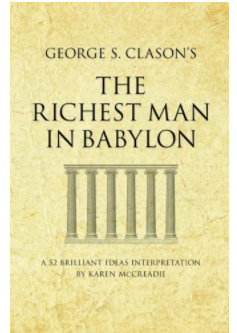
- The Richest Man in Babylon – Clason To be honest, this isn’t the most riveting read, but it lays out the bedrock of success with personal finance. I think everyone should read it at least once.
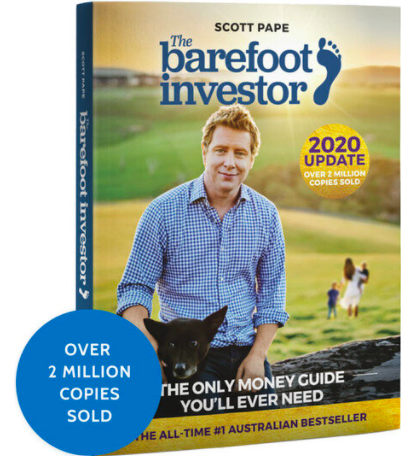
2. The Barefoot Investor – Pape. This book is written for Aussies who are learning about personal finance from a starting place of “Help me, I know nothing and I’m in debt.” My boys aren’t in this place, but it has some good strategies for managing money and keeping on track. I thought it was a good guide to start with.
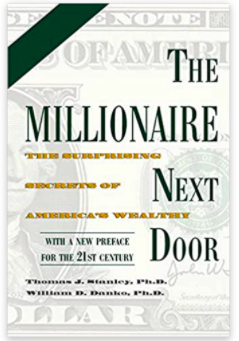
3. The Millionaire Next Door – Stanley and Danko. This is one of my favourite books. Instead of spouting theories, Stanley and Danko drilled down into the stats, interviewing people who actually walked the walk. What are the common characteristics and behaviours of people who actually reach the double comma club? The answers are surprisingly encouraging. There is a newer edition out, written by Stanley’s daughter: The Next Millionaire Next Door.
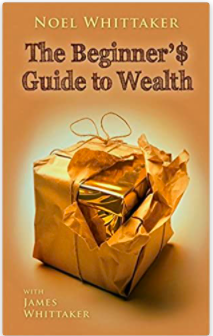
4. The Beginner’s Guide to Wealth – Whittaker and Whittaker – I chose this one because it builds on the foundations laid by the basic skills in the previous books. This one has information about investing and wealth creation but also talks about life skills and mindset, which are of course very important. The authors, father and son team Noel and James Whittaker, pepper the chapters with little stories and anecdotes, which makes the information easier to digest.
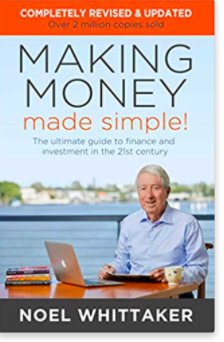
5. Making Money Made Simple – Whittaker. I always knew I was going to give the kids this book and as they all head into their mid to late twenties, now was a good time. I first read this book years ago when I was a newly-minted single mother. It gives a broad overview not only of saving and investing, but also demystifies things like insurance and superannuation. It’s the perfect handbook for life in Australia!
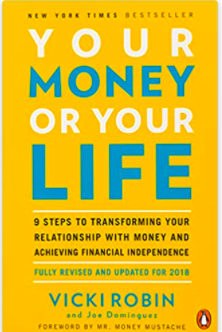
6. (Bonus Book for Ryan27) Your Money or Your Life – Robin and Dominguez After reading and enjoying ‘The Millionaire Next Door, Ryan27 requested another book. So many people have credited this book with changing their lives with regards to the way they think about time and money, so this was an easy pick. This book has brought balance and clarity to many people.
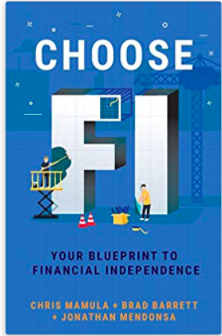
7. Choose FI : Your Blueprint to Financial Independence – Mamula, Barrett and Mendoza The kids are all old enough to have a commute. Rather than getting financial information from books, maybe listening to podcasts might do the trick for some of them instead. This book has plenty of anecdotes about different people on their journey towards financial independence and does a good job of showing why FI is a wonderful goal to aim for.
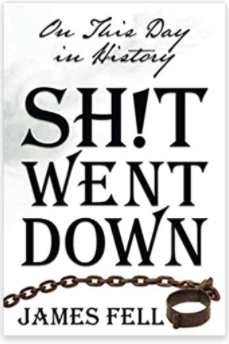
8. This year’s book. SSSSHHHHH!!!! Don’t tell the boys!
On This Day in History, Sh!t Went Down – Fell. This will be a VERY popular one, I think! I first came across James Fell on Facebook, where he posts every day about events and people who have made their mark on history. The book has every day in the year covered. Fell is an entertaining writer with absolutely no filter. If the F word bothers you, then this isn’t the book for you. If you want to get your reluctant teenager to read, then this is DEFINITELY the book for you.
The reason I chose this book is that by now, the kids have a very comprehensive little reference shelf happening. There’s only one more book I’d like to buy for them, but they’re not yet at the stage to be investing. This book is a funny and informative look at times gone by. Sometimes we can take our lives and all of the good things we enjoy for granted. The secret of happiness is to know how far we’ve come and to appreciate all of the good things we now enjoy. A little bit of historical knowledge is a beautiful thing, especially when it’s fun to read.
So which book am I waiting for a future Christmas to buy them?
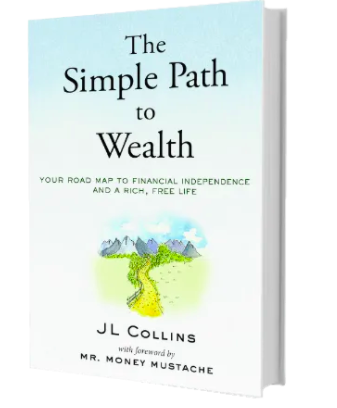
The Simple Path to Wealth – Collins Very early on in the life of this blog, JL Collins brought out this book and graciously gave a couple of copies as a giveaway for my readers. This is a brilliant book that organises all of the knowledge he’d written about previously on his blog. When I was just starting off on my investment life, I learned so much from his stock series. Some of it is US-centric, but most of the information is applicable to investors everywhere. He explains it all so clearly and it was incredibly helpful. (One thing I liked about this book was when a chapter was for US-based investors only, Collins actually gives the rest of us a heads-up that we can skip this bit. I loved that! So many US writers assume that the whole world is American.)
The Second List – Other books I’ve learned from and enjoyed.
In no particular order…
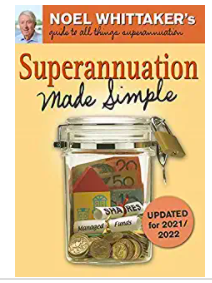
- Superannuation Made Simple : Everything You Need to Know About Planning for a Happy Retirement – Whittaker Ugh. Super! On our way to FI we learn all about maximising our contributions, salary sacrificing etc, but then when retirement looms, we realise we know bugger all about what comes next. We’re all up to speed with what to do in the accululation pase, but no one really says much about what you have to be aware of when you want to start pulling out money to live on.
I found this book really helpful, particularly the second half. It was released just when I was deciding to retire early, so I pounced on it straight away.
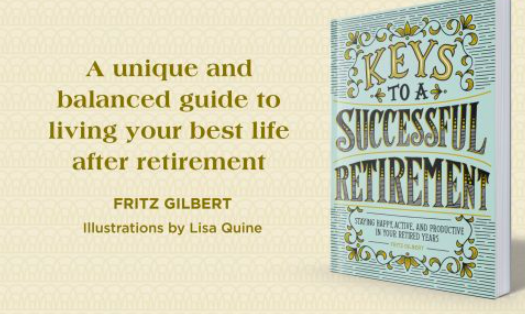
2. Keys to a Successful Retirement – Gilbert Many of you would be familiar with Fritz Gilbert’s blog ‘The Retirement Manifesto‘ where he blogged about his life preparing for and then entering retirement. Along the way, he began to notice that while lots of people preparing for retirement spend a lot of time thinking about the money side of things, far fewer spend time thinking and preparing for what they’re actually going to be doing with all their free time once they pull the pin on their jobs.
This book is about getting the balance right. He says that it’s just as important to know what you’re going to be retiring TO, rather than only worrying about how you’re going to pay for things. I knew that I had this all sorted – I’ve never lived to work; I’ve always worked to live – but for someone who is struggling with the “But won’t you get BORED?” fear of retirement, this has a lot of excellent things to consider.
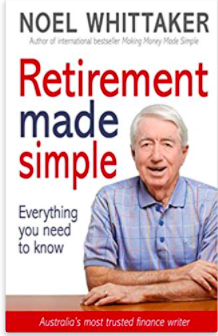
3. Retirement Made Simple – Whittaker Oof! There’s not just superannuation to think about. There’s taxes and health care and housing and happiness and …. and… and…
This is a reallly comprehensive look at all the things you need to consider when getting ready to retire in Australia. It’s a bit scary to contemplate life without the frtnightly pay packet rolling in and this ok answered quite a few of my questons, as well as introducing topics I hadn’t even considered. Well worth reading.
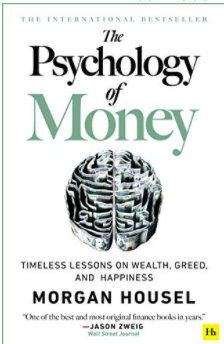
4. The Psychology of Money – Morgan Hausel
This is a WHY book instead of a HOW TO book. It’s all about why people make the decisions they do when investing. I really enjoyed reading this one. It’s chock-full of anecdotes about real people that Hausel uses to illustrate the points he’s making. For beginner investors, or people like me who can hardly decipher a graph to save themselves, this book is really approachable and is full of teachable points.